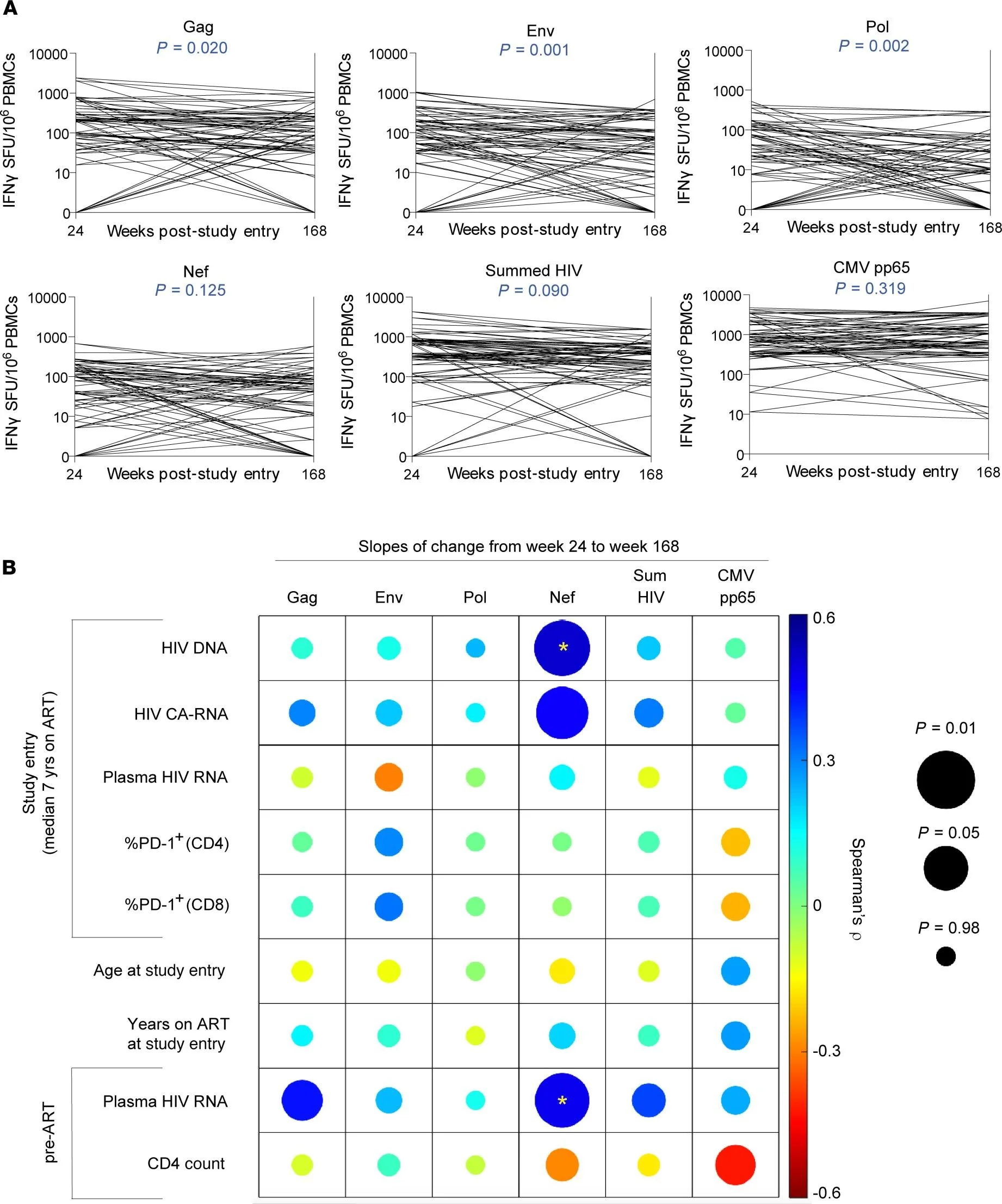Clinical Studies
One of the more rewarding aspects of our research program is the ability to take the most promising therapeutic strategies that emerge from our pre-clinical experimental platforms through to testing in phase I clinical trials. Our status as a member of the Infectious Diseases Clinical Division at Weill Cornell Medicine positions us to initiate such interventions, along with our clinical collaborators. Currently, we are contributing to four such trials – all in the setting of HIV cure research.
Our in vitro studies have identified an IL-15 superagonist known as N-803 (previously known as ALT-803) as an agent which both reverses HIV latency and enhances the abilities of CD8+ T-cells and natural killer (NK) cells to eliminate HIV-infected cells (1). Subsequently, others have shown that N-803 also causes these immune cells to move into the lymphoid tissues in the body that harbor the majority of HIV reservoirs (2). We posited that this could be combined with broadly neutralizing antibodies (bNAbs) as a potent one-two punch against HIV reservoirs, where bNAbs serve to target infected cells for killing by NK cells. In unpublished data, our collaborators have shown that this combination enables immune control of a monkey version of HIV (SHIV) without antiretroviral therapy -https://www.biospace.com/article/immunitybio-s-promising-preclinical-hiv-drug-is-moving-into-phase-i-trials/.
Based on these results, we have teamed up with the AIDS Clinical Trials Group on ‘ACTG A5386’ a two-arm phase I trial testing the abilities of an IL-15 superagonist alone or in combination with broadly neutralizing antibodies to either reduce HIV reservoirs or enable durable immune control.
In a related study, we have teamed up with Marina Caskey and her team at Rockefeller University to test a similar combination of bNAbs and N-803, but in the context where antiretroviral therapy is stopped at the time of infusion. This will test the hypothesis that a small amount of HIV antigen will also boost virus-specific T-cell responses, which may further contribute to viral control.
Two additional studies aim to test different cell-therapy approaches to enhancing the abilities of HIV-specific CD8+ T-cells to control viral replication. One study, named RESIST, expands T-cells in vitro to redirect responses against conserved and vulnerable parts of HIV, and then infuses them into study participants. Our PDX mouse model (see humanized mouse page) has allowed us to test these same T-cell products in an in vivo system, where they show potent antiviral activity – and we are in the process of determining if this also occurs in study participants.
The second cell therapy study that we are contributing to is called DC04 – led out of the University of Pittsburgh – and infuses study participants with dendritic cells that are primed to boost HIV-specific T-cell responses in the study participants. As with RESIST, this incorporates a strategy to attempt to redirect these responses against conserved and vulnerable regions of the virus.
We are eagerly working towards completing these ongoing trials and interpreting the results – with our ultimate hope being a signal that one or more of these interventions puts us on a path towards HIV remission. In the meantime, we are working with other academic and industry partners to evaluate potential therapeutic candidates in our in vitro and pre-clinical systems – towards the next generation of these critical studies.
1. Jones RB, Mueller S, O'Connor R, Rimpel K, Sloan DD, Karel D, et al. A Subset of Latency-Reversing Agents Expose HIV-Infected Resting CD4+ T-Cells to Recognition by Cytotoxic T-Lymphocytes. PLoS Pathog. 2016;12(4):e1005545.
2. Webb GM, Li S, Mwakalundwa G, Folkvord JM, Greene JM, Reed JS, et al. The human IL-15 superagonist ALT-803 directs SIV-specific CD8(+) T cells into B-cell follicles. Blood Adv. 2018;2(2):76-84.
